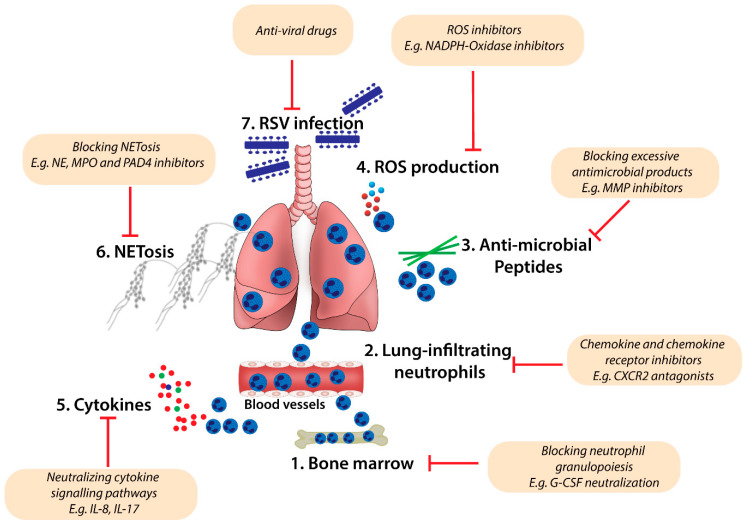Figure 2.
A schematic model for targeting excessive neutrophil homeostasis and function in RSV bronchiolitis. Pharmacological inhibition of excessive neutrophil maturation, recruitment into lung tissues, and effector function may improve the treatment of severe RSV bronchiolitis. Therapeutic inhibition strategies may aim to: (1) block excessive neutrophil granulopoiesis in the bone marrow (e.g., neutralising G-CSF production and function); (2) antagonise chemokine-mediated neutrophil activation and chemotaxis to the lung microenvironment (e.g., using CXCR2 small molecule inhibitors); (3–6) regulate neutrophil function in the lung (e.g., blocking the production of antimicrobial products such as MMPs (3), ROS (4), inflammatory cytokines (5), and deposition of NETs (6)). Therapeutic anti-viral products (7) may also limit RSV-induced recruitment of neutrophils in the lung during infection.

